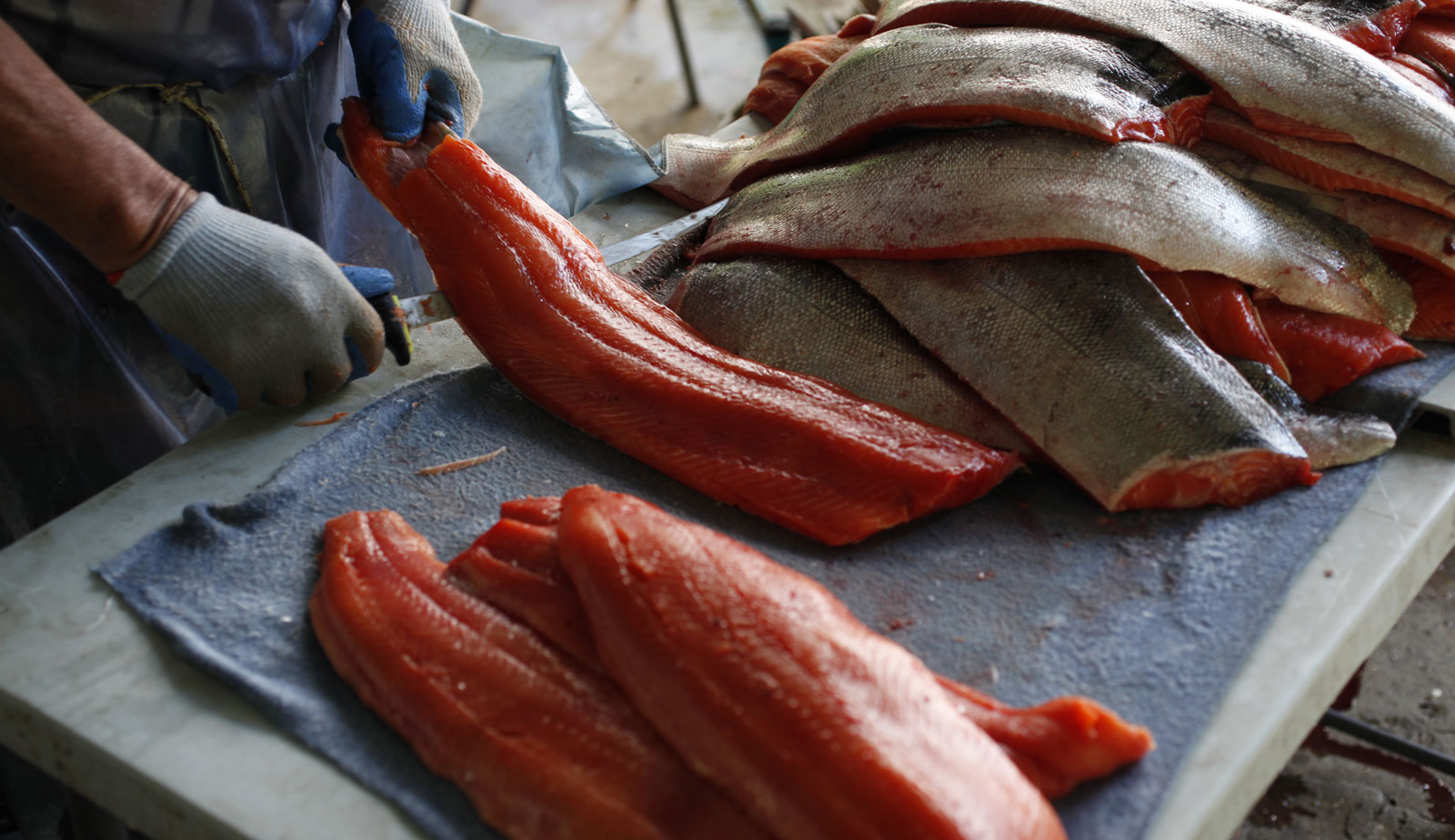


A man is filleting fresh salmon, he wears gloves and is holding a knife is one hand, and a piece of fish in the other. On the right, there is a large pile of salmon skins, and on the left is a pile of fillets.
“Celebration Song” composed by Gilbert Joe of Kwak Kwaw Apilt.
Stó:lo New Year and the Fall Run of Spring Salmon (Naxaxalhts'i "Sonny" McHalsie)
View Transcript[Naxaxalhts’i ‘Sonny’ McHalsie]: The name of this place here is called Qwíqwexem. It just means the small, uh, spring salmon. It comes from the word sqwéxem. Sqwéxem is the name of the - your guys’ campsite over there. A lot of people say sqwáxem, but it’s actually pronounced sqwéxem. Ok, sqwéxem is the Ts'a'í:les spring salmon, And it’s the arrival of that spring salmon that um, gives the Stó:lō New Year. Like when that spring salmon comes into the Ts'a'í:les River, that’s what we call the Stó:lō, the beginning of the Stó:lō New Year.
Download:
SD (4.3 MB) | HD (13.4 MB)
Sqwélqwel
Sqwélqwel means "true news". It refers to the oral history of our ancestors and the places they fished, hunted, harvested, and spent time in our world. Every Stό:lō person has their own sqwelqwel. Just as sxwōxwiyám links us to things and places of long ago, sqwélqwel links us to the more recent past. Once we know our sqwélqwel, we have a responsibility to use the places our ancestors used. Once we use these places, it becomes our responsibility to take care of them. Taking care of the places in our sqwélqwel means protecting them so they can provide for our future generations.



